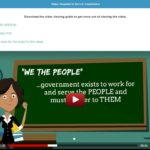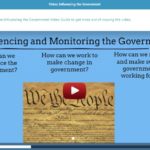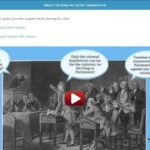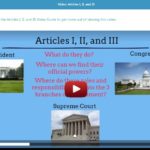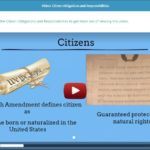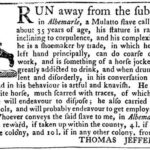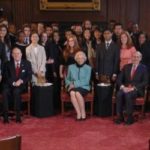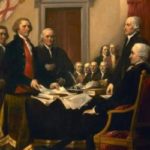This resource provides students with an English language video and associated student friendly readings (in English, Spanish, and Haitian Creole), as well as reading and video guides and self assessment tools. Using these, students will explore the meaning and importance of the Preamble.
Free registration is required to use the resource.
Learning about the Preamble to the U.S. Constitution
